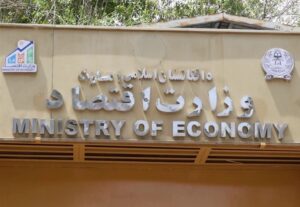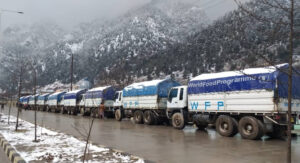KABUL (SW) – Five international organizations, including Action Against Hunger, the World Health Organization, the Islamic Relief Organization, Save the Children, and Vision, have issued a joint statement, warning about the ongoing drought in Afghanistan. They emphasized that more than half of the country’s population is being adversely affected by the prolonged drought.
The statement on Monday, mostly highlighted the concerns of Save the Children Organization in it. “The families dependent on agriculture will suffer the most, and according to international estimates, about 7.8 million children in Afghanistan will not have access to enough food in 2024, and if the drought continues, the lives of more children will be at risk.”
Drought, a persistent dilemma with severe impacts on agriculture and horticulture, is negatively affecting the lives of farmers.
Farmers in Parwan province express concern that if the drought persists in Afghanistan, particularly in this province, people might face starvation and lose their livelihoods.
Qader, a farmer in Parwan, says “If the drought continues, people will face starvation and will not earn good income from agriculture.”
Rashed, a resident of “Butkhak” village in Bagrami district of Kabul, laments the impact of the persistent drought, mentioning that they typically have two harvests from their agricultural land each year. However, this year, they could only manage to harvest once due to the adverse effects of the drought.
He adds: “The wheat or corn or the other agricultural items will not produce crops due to the lack of water.”
Officials from the Ministry of Energy (MEW) and Water say that they have built 143 dams in 11 provinces to reduce the effects of drought.
Ammar Mamuzi, Head of Water Supply of the MEW, emphasizing the construction of large water dams in Maidan Wardak, Paktia, Ghazni, Logar and other provinces, says that in order to fight the drought, watershed management programs and the plan to prevent excessive use of water will be implemented.
Misbahuddin Mustaeen, the spokesperson for the Ministry of Agriculture, asks other countries to cooperate with this ministry to reduce the effects of drought in Afghanistan.
He says: “Drought causes a decrease in domestic production and destruction of agricultural lands and agricultural facilities in the country. It is one of the effects of climate change, and this problem is not only in Afghanistan, and it is impossible to deal with it alone. We ask countries to cooperate with us and support farmers.”
On the other hand, Khaled Stanekzai, a natural resources expert, says that the de-facto government must manage surface water. “Due to the drought in the agriculture sector, in the areas where there are forests, trees that have more resistance should be planted, and surface water should be managed also snow and rain should be thrown into absorption wells.”
The Food and Agriculture Organization of the United Nations (FAO) expressed concerns about the impact of drought on agriculture, noting a decrease in farmers’ crops in the current year. The combination of water scarcity and adverse weather conditions has posed significant challenges to Afghanistan’s agricultural sector.






